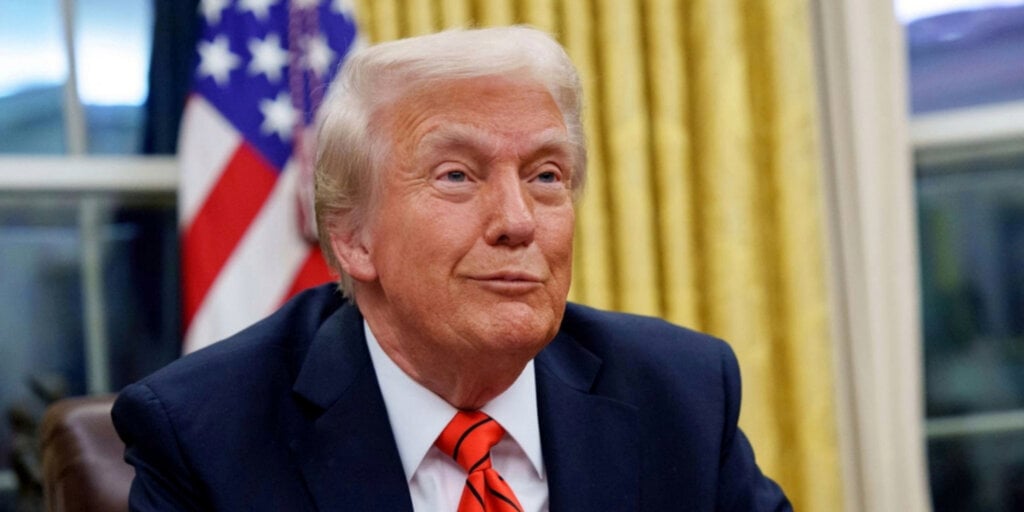Politicians from the opposition and members of the blockchain industry in Poland have taken a critical stance regarding the European Union’s new crypto regulations, suggesting their country should implement a less strict version of the rules.
While Europe’s monetary authority seeks to speed up the finalization of its digital euro project, promising cheaper and faster payments while skipping bank accounts, many Poles fear that a future of central bank digital money would compromise their privacy.
Opposition leaders in Poland protest EU crypto policy and digital euro plans
Representatives of the Polish opposition, including a former prime minister, have voiced concerns over Europe’s push to implement a digital version of its common currency, the euro, and its attempt to enforce comprehensive cryptocurrency regulations across the bloc.
The reactions of the right-wing political figures come in response to the EU’s Markets in Crypto Assets (MiCA) legislation, which entered into effect in December and must be transposed into member states’ national law, as well as the advancing project to launch a digital euro.
Discussions on the need to develop a digital currency for the eurozone started more than five years ago. The President of the European Central Bank (ECB) Christine Lagarde urged other EU institutions involved to accelerate the legislative process in order to have it ready by October.
According to its proponents, the European Central Bank Digital Currency (CBDC) should address the growing demand for digital cash that facilitates low-cost, fast, and global transactions without employing traditional banking services.
“The world is moving towards true digital money: cheap, instant transfers worldwide, 24/7, and without a bank account. The ECB wants to speed up work on the digital euro,” the leading Polish daily Gazeta Wyborcza wrote in an article this past Sunday.
It also pointed to private companies developing digital currencies such as the Polish firm Billon, which is preparing to issue a stablecoin pegged to the value of the national fiat, the złoty, another attempt at digitalizing finance.
In the next few years, this “could herald the end of traditional transfers and payments based on cards as well as the opening of a completely new field of finance: cheaper, faster, based on having a smartphone, but without a bank account,” the report elaborated.
The newspaper noted, however, that the country’s former Prime Minister, Mateusz Morawiecki, and other representatives of the right-wing political spectrum in Poland have protested against what they consider a growing danger of restricting the privacy of users.
Morawiecki served as the head of the Polish government between 2017 and 2023, when his national-conservative Law and Justice (PiS) party lost its parliamentary majority and a confidence vote despite winning the elections.
Lawmaker Janusz Kowalski says Poland should become a crypto hub
Another member of the party, Janusz Kowalski, recently commented on the pending adoption of a draft law designed to align Poland’s legislation with MiCA. He suggested that the authorities in Warsaw should get rid of some of the regulatory burdens that come with the EU package.
The lawmaker revealed he is preparing to meet with representatives of the industry to discuss specific changes to the bill, which was criticized by the crypto community for containing provisions that will push companies out of business and hit the entire blockchain sector in Poland.
“So far, the new law has not been voted on, so a lot can still change in this area. And it turns out that there is light at the end of the tunnel,” the crypto news portal Bitcoin.pl reported at the end of March, revealing to readers that the law may be adopted “in a milder form.”
🇵🇱Polska powinna być europejskim i nawet światowym hubem kryptoaktywów. Dlaczego? Ponieważ mamy najlepszych informatyków na świecie. Jestem zdecydowanym zwolennikiem wykorzystania potencjału kryptowalut. #Kryptowaluty #Krypto@nextblockexpo pic.twitter.com/e1DSoJtm0k
— Janusz Kowalski 🇵🇱#RuchObronyGranic (@JKowalski_posel) March 30, 2025
“Poland should be a European and even global crypto-asset hub. Why? Because we have the best IT specialists in the world. I am a strong supporter of using the potential of cryptocurrencies,” Kowalski said in a recent interview.
Public consultations on the future of the country’s crypto market were held at the Sejm earlier last month, and Janusz Kowalski was among the organizers. Legal experts, regulators as well and representatives of the blockchain industry took part in the talks as well.
“We will soon organize another meeting…to talk directly with the industry about specific changes to this act, which is a de facto introduction of MiCA solutions in Poland, in order to remove these unnecessary regulatory burdens for startups, companies that want to invest in crypto assets,” Kowalski unveiled.
Cryptopolitan Academy: Tired of market swings? Learn how DeFi can help you build steady passive income. Register Now
















No comments yet